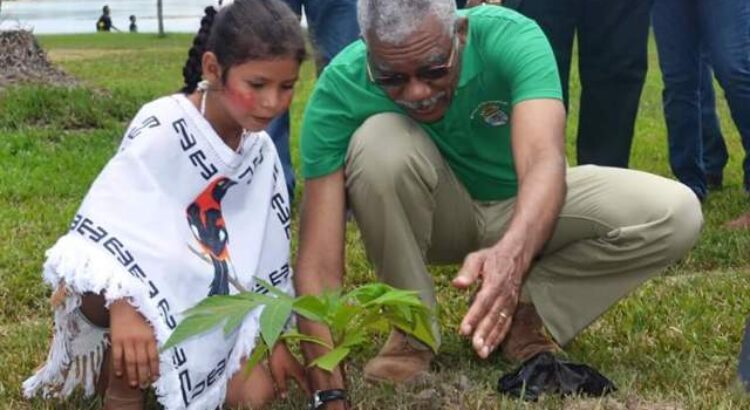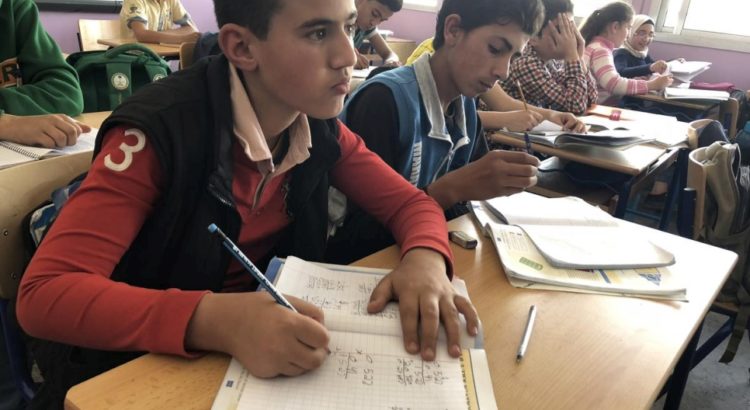By Marta Estellés, University of Cantabria, Spain and Gustavo E. Fischman,
Arizona State University, USA
During the COVID-19 crisis, educational responses have been mainly geared towards minimizing the problems derived from school closures and mantaining educational services. While it is understandable to desire the certainity that normality provides, we believe that returning to the pre-existing educational models may not be desirable for the great majority of teachers, students and families. As graffittied on many Hong Kong walls, “We can’t return to normal, because the normal that we had was precisely the problem.”
In educational terms, the COVID-19 pandemic implies much more than a disruption to normal schooling that can be solved by the rapid deployment of pedagogical interventions such as digital learning models, alternative scheduling and physical distancing in classrooms and schoolyards. Granted, these were interventions in a time of crisis that may have helped to mitigate the historically unprecedented suspension of schooling for almost 1.6 billion students worldwide. However, they shouldn’t prevent us from ignoring the pre-COVID-19 negligence of most education systems to promote empathy and to encourage democratic forms of engagement and collaboration among citizens and governments from other regions of the world.
In this context, it would not be surprising if various educators, policy makers and scholars in the broad field of global education soon start to demand more Global Citizenship Education to address the pedagogical shortcomings revealed by the COVID-19 crisis. Indeed, some have already started. Yet, we wonder: can Global Citizenship Education models provide an adequate response to the COVID-19 crisis?
Global Citizenship Education (GCED) has been frequently presented as a pedagogical answer to respond to the challenges derived from globalization: respect for human rights, development of global responsibility, environmental awareness, economic growth, social justice, and so forth. Despite good intentions, most GCED models have been framed as evolutionary and redemptive models, reinforcing neo-liberal perspectives of minimizing both the public sphere and governments’ obligations toward their citizens. With some noted exemptions, GCED models tend to promote an “entrepreneurial self” with the implicit assumption that the responsibility for solving global problems lies exclusively with individuals’ behavioural changes, not as a shared responsibility between citizens, governments and international institutions. However, as the COVID-19 crisis clearly highlights, the problem is not only that there are individuals who are not able to imagine and carry out forms of cooperation with other citizens around the world, but also –and perhaps more importantly– that many governments are not willing, nor demanded, to do so.
During this crisis, most governments –regardless of their orientation– did not begin to act until the COVID-19 threat was within their frontiers, framing this challenge as a national battle. However, global cooperation materialized in measures such as sharing reliable information among countries, coordinating the global production of medical equipment or creating an economic safety net could have considerably minimized the spread and the impact of the virus.
This pandemic has highlighted how deeply we have internalized the idea that governments must defend the interests of their nations. Challenging national frames is not only a matter of fostering ‘global awareness’. We have never been so aware of the dense bonds that connect us to each other globally, but we still seem unable to articulate alternative ways to cooperatively face global crises. Yet, what makes us reluctant to cooperate with humans from other regions of the world? What motivates us to do it? Proponents of GCED have usually taken for granted that altruistic beliefs and rational ideals modeled after the tradition of the Enlightenment are the main drivers of global citizens’ behaviors. However, emotions and non-altruistic behaviors are also an intrinsic part of our human nature. Ignoring the power of emotions in political decision making is not only naïve, but also extremely impractical for any current civic education proposal that aims to go beyond good intentions.
The COVID-19 catastrophe directly highlights the urgency of developing global educational alternatives that go beyond romantized notions of citizenship. Right now, it is our responsibility as teachers, educational researchers, policymakers and concerned international organizations to encourage reflections that expand our possibilities to address the pedagogical dimensions of global civic challenges.
Fuente: https://gemreportunesco.wordpress.com/2020/07/03/global-citizenship-education-after-the-covid-19-crisis/








 Users Today : 40
Users Today : 40 Total Users : 35403378
Total Users : 35403378 Views Today : 46
Views Today : 46 Total views : 3332672
Total views : 3332672